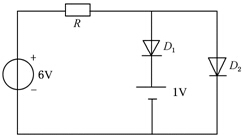问题
问答题 简答题
简述席勒“素朴诗”与“感伤诗”的区别
答案
参考答案:
席勒认为两者的区别在于:
第一,从起源看,“素朴的诗”源于诗人同自然的和谐一致;“感伤的诗”则源于诗人同自然的对立。
第二,从历史演变看,“素朴的诗”是古代诗的形式;“感伤的诗”是近代诗的形式。
第三,从内容看,“素朴的诗”是“模仿自然的诗”,即重在再现客观的自然;“感伤的诗”是“表现主观理念的诗”,即侧重于描绘诗人对自然的主观感受以及在心灵中引起的情感。
第四,从创作特征看,“素朴的诗”是自然的恩赐,与思考无干;而“感伤的诗”则借助思考,努力使带有缺陷的对象完善起来。
第五,从产生的效果来看,由于“素朴的诗”侧重于对客观现实的模仿,诗人与自然之间处于单一和谐的状态,因而作品也是叫人愉快的、纯洁的与平静的;而“感伤的诗”则由于侧重于对主观观念的表现,诗人时常处于感觉与印象的冲突之中,因而作品也往往唤起人们严肃、紧张、复杂的感情。换一个角度看,“素朴的诗”是生活的儿子,故而能够引导读者回到生活中去;“感伤的诗”是隐遁和静寂的产物,故而又招引读者求取隐遁和静寂。
第六,从诗人与自然的关系来看,由于素朴的诗人热衷于对感性现实的模仿,因而总以愉快的态度面对现实;而感伤诗人则因迷恋于现实难以充填起来的超现实的观念,因而总是对现实生活感到厌倦。

